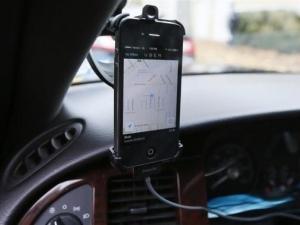
While adopting a "one-size-fits-all approach" in technology has not fared well for multinational businesses looking to make an impact in new markets, Uber plans to roll out the exact same tech offering to more cities in Africa.
The company, which runs a smartphone app connecting passengers with drivers, has expanded its presence from Johannesburg to operate in Cape Town and Durban. It cites positive consumer response as being behind its aim to look for further opportunities in more cities.
Alon Lits, GM for Uber Johannesburg, says a pivotal reason for the app's success in over 200 cities globally is that it honed in on a problem experienced across the globe. "Wherever they may be, people are looking for a safe, efficient and reliable form of transport and Uber's technology allows that. The experience offered by the solution means customers come to trust it once they're exposed to how it works."
Lits adds, although specific figures cannot be divulged, the company has completed "thousands of trips on a weekly basis" across SA since launching in August last year.
Not so simple
Although Uber presents the same tech offering across different markets, pundits note this is an exception to the rule when it comes to technological solutions. Roan Murray, CEO of mobile payments company Switching House, says a "one-size-fits-all" approach is usually "a guarantee of failure" as the way people interact with technology differs vastly from country to country.
"Using the success of a technology in the European market on American markets as an indicator of success in the African context in my mind means very little, especially if the technology is customer-facing in nature."
Murray says SA and other African countries have seen many false starts in the mobile space, with lessons picked up from solutions.
Mobile money offering M-Pesa launched as a partnership between Vodacom and Nedbank in August 2010, following its success in east African markets Kenya and Tanzania. However, after struggling to gain traction locally, it was revamped in July this year with better integration into banks' retail infrastructure.
At the time of its re-introduction, the company said it had studied factors which held the service back in SA as well as those that made it a success elsewhere.
Murray adds, for solutions to succeed in different markets, they must access a broad base of consumers. "The principle should be to solve problems and empower the consumer, not using technology to achieve what people can already do."
Independent analyst Spiwe Chireka notes telecoms companies have also found the going tough when adopting a one-size-fits-all approach in Africa. She says the jury is still out on whether Indian technology company Airtel can succeed on the continent as it pursues a similar strategy to its home country. Meanwhile, adds Chireka, MTN's experience in different markets has seen it adapt its strategy successfully.
"You can't look at Africa as one entity. Any company that simply looks to replicate the same strategy in different countries will likely struggle," says Chireka.
Driver partnerships
Part of the reason for Uber's growth, adds Lits, is its focus on economic partnerships with drivers in different cities. "We want to provide them with as many benefits as we can to empower them to run an even more successful business. These opportunities include getting better financing options and insurance rates for their vehicles, discounts on petrol and car washes, to name a few."
Lits says training and up-skilling drivers are important focus areas for Uber, including improving familiarity with the app and GPS navigation system, various scenarios they might encounter while on the road, and a "customer first" principle throughout.
Lits says, although Uber currently works with hundreds of drivers throughout SA, more have been targeted to add to a network of around 20 000 globally.
Share